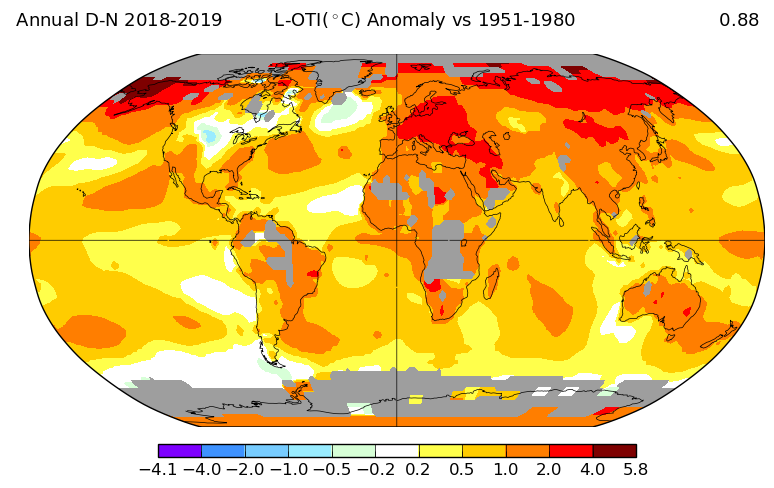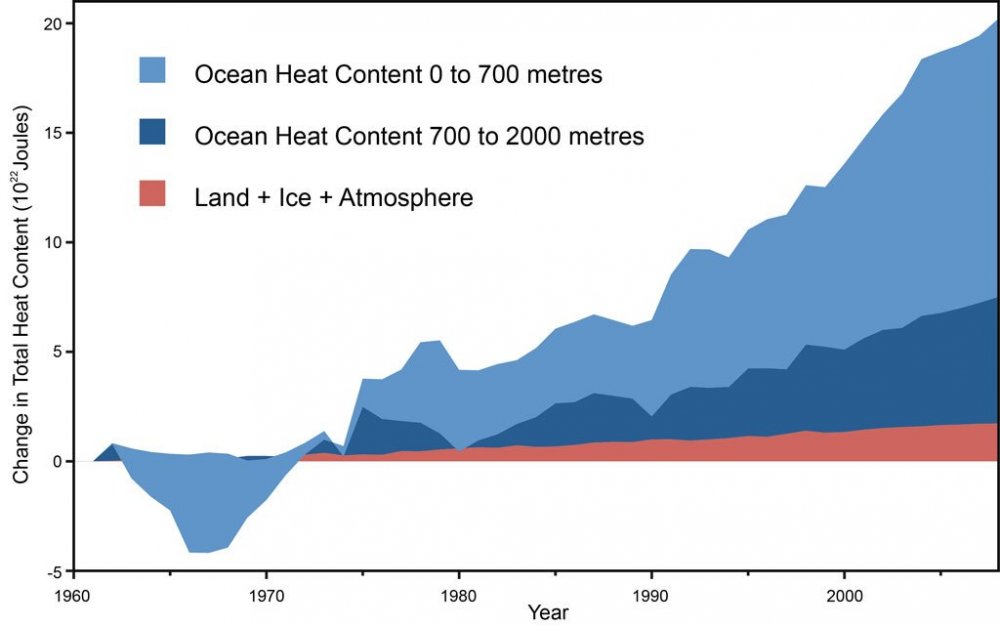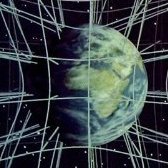Leaderboard
Popular Content
Showing content with the highest reputation on 10/20/20 in all areas
-
Emphasis added. How fortunate the climate scientists provide an abundance of other information concerning temeprature variations in the oceans, the land and the atmosphere, locally and regionally, over the short term ( hours and days) to the long term (years, decades, millenia and beyond), relating it to such diverse issues as ocean currents, weather, atmospheric composition, albedo influences, etc. In short, you have erected a strawman upon which you are making a pointless and ill-informed attack.4 points
-
I find it really hard to get a coherent picture of the opening post. I see three different aspects that trigger different tones of response, some of which are pretty redundant with the replies given already. So maybe I'll just briefly touch all three aspects to show why at least I have problems with getting a clear picture of this thread. First, there is the relatively long explanation about sums or averages not giving the full information about the individual components that contribute to them. That is correct, mathematically trivial and well known to everyone working in any field of complex systems. It is also pretty banal, and applies to pretty much every science or society related number you ever hear in the TV news: the gross-domestic product, the number of Covid-19 infections, salaries in the IT sector, the time that kids spend on social media, ... . Now, admittedly, there are a lot of people who, for different reasons, appear to limit the discussion of a topic essentially to these numbers. So for this aspect of the opening post I am torn between a sarcastic "great work, Sherlock" and an honest "it is great that you are aware that this one number is not the full picture". I think the relative volume of the sub-optimal example pushed a few people towards the former reaction. Second, there is the aspect of the specific role of an average temperature in climate science, or more specifically its role in the climate change debate. For me, this would be a great topic of debate and learning. I worked as a scientist in a somewhat related field for several years, and still my understanding of it is very basic and with a lot of "that's how I imagine it is". I'll not formulate a coherent story for this post, but just throw in a few imho relevant pieces: In the context of the greenhouse gas effect the average temperature is a very sensible, experimentally-measurable observable with some weaknesses (energy stored in the oceans). Climate scientists don't model average temperatures but create sets of future scenarios for the evolution of complex systems. The evaluation of these scenarios cannot be reduced to a single number that tells you how good or bad the scenario is. What you can do is group your scenarios according to some meaningful parameter, see what typical scenario effects are for that parameter, and then have some delegates barter about how bad you want it. Remember: The problem with climate change is not the increase in the mean temperature, but increase in extreme weather conditions, change in habitability on the planet, the self-enforcing mechanism (loss of reflective ice, melting of permafrost, methane emissions from the oceans), and possibly a bit of land loss from rising sea waters. And finally, there is the third aspect of the opening post which really turns me off: The first half of the first sentence and the last sentence. Thanks to them, the post with potential for an interesting discussion comes in a wrapping that says "troll, ignorant or political agenda inside" to anyone with a bit of experience in social media. So despite giving the OP a huge benefit of doubt with the time I put into this post I don't want to leave them without comment: 1) "Climate scientists are concerned with deviations in the average global temperature": No, they are mostly not. Type "climate science" into Google and check out what they do. 2) "Has there been any research in this area [of what is really going on]?": Yes. There is a complete scientific discipline called Climate Science that is concerned with these questions.3 points
-
That was my complaint to you. I suppose turnabout is fair play. Good for you. The pride might be better justified if your audience agree with you. Thus far, I'm not sure that has been achieved. It was an interesting take on the history of Chrisitianity, but contained nothing discernible, to me, concerning the "rational foundations of religion". I suggest you need to change the title, or the content of your post if you wish them to match. This doesn't parse. Do you want to try again? That's two more sentences that don't parse. (If you are, as you say you are, a university student you ought to be doing a better job of writing grammatically. )Even if the sentences did parse, I suspect they would make little sense, for I think you are using words with definitions of your own. Also note that many members here are not Americans. So your state flag references need a little more background.2 points
-
1 point
-
It has been useful to have a simple, single measure that shows global change but that global average is the tip of a very large iceberg. The last IPCC report - AR5 - ran to 2,000 pages, citing nearly 10,000 scientific studies. Claiming all concern over man made climate change is justified by one global average surface air temperature is not true. Admittedly most Presidents or Prime Ministers will not have read any full IPCC reports, but Synthesis reports and Summaries for Policymakers are reasonably accessible and understandable. Also they can call upon science agencies and experts to help them understand - as well as confirm that the science that produced those reports is valid. They can also run checks for evidence of fraud or conspiracy - but the "worst" anyone has managed is a few phrases in emails taken out of context and the fact that there are people in the UN who are dedicated to reducing global inequality and poverty and they want to incorporate those ends into climate policy. The use of global average surface temperatures may be more accident of history; a whole lot of local temperature records - minimums and maximums mostly - being in existence when climate change became a subject for study offered a way to find out if the world is warming (or cooling). At it's most basic it is a way to confirm or not that global warming is actually taking place. Whether viewed as a history of warming that needs explanation or viewed as real world confirmation of theoretical understanding of The Greenhouse Effect and how it should be expected to change global heat balance when CO2 levels change, it does give confirmation. Dive into the data and variability across the world is there too ; it gets used in many different ways, including with respect to local and regional change. 2018-19 regional average temperature anomalies for example - But I think of all measures of real world change that most closely shows the heat gain from man made climate change, this one is best -1 point
-
Yes, but it was a decent first start. For that, surely it deserves some respect. I mean, you have to start from somewhere. Religion was a first attempt to organise our way of thinking about the Universe. Later, we got into Science, which is much better and far more productive. But the earlier religious ideas should not be despised, or so it seems to me.1 point
-
The "Gallilean theory" says that velocities add as $v_1+ v_2$. If you see a person driving by at 40 mph, relative to yourself, on the back of a flatbed truck and, just as they pass you, that person throws a ball forward at 30 mph, relative to the truck, Gallilean theor y says that you would see that ball having speed 40+ 30= 70 mph relative to you. Relativity theory says that the velocities add as [tex]\frac{v_1+ v_2}{1+ \frac{v_1v_2}{c^2}}[/tex]. If the velocities are small then [tex]\frac{v_1v_2}{c^2}[/tex] will be negligible and that the two formulas give the same thing to within measurement error. If [tex]v_1[/tex] and [tex]v_2[/tex] are close to c, as [tex]v_1= v_2= 0.6c[/tex] then [tex]\frac{v_1v_2}{c^2}= (0.6)^2= 0.36[/tex] so the velocity of the bullet relative to you is [tex]\frac{0.6c+ 0.6c}{1+ 0.36}= \frac{1.2}{1.36}c= 0.88c[/tex].1 point
-
Monitor the trend of the averaged temperatures of a turbulent gas measured over wide spans of time and space which have highly heterogeneous pressure and surface conditions. Exactly. Of the average temperatures of a turbulent gas measured over wide spans of time and space which have highly heterogeneous pressure and surface conditions. You seem to have a very basic problem of understanding. And @VenusPrincess, don't go further in that direction, because I can see very clearly now how much you ignore about ergodicity and the role it plays in physics. Doh!1 point
-
IIRC it was burning/oxidation in metals, not the burning of wood, where mass increase was observed. Right concept, wrong target. Specifically I think it was a detailed analysis of magnesium. (pause) https://en.wikipedia.org/wiki/Phlogiston_theory “Eventually, quantitative experiments revealed problems, including the fact that some metals gained mass when they burned, even though they were supposed to have lost phlogiston. Some[who?] phlogiston proponents explained this by concluding that phlogiston had negative weight; others, such as Louis-Bernard Guyton de Morveau, gave the more conventional argument that it was lighter than air. However, a more detailed analysis based on Archimedes' principle, the densities of magnesium and its combustion product showed that just being lighter than air could not account for the increase in mass”1 point
-
Theorems are proven mathematical results. Physics' so-called theorems are rigorous results: Coleman-Mandula, Penrose-Hawking, Köchen-Specker, Bell, Ehrenfest... What do they mean? How relevant are they? are different questions. These theorems are later examined by mathematicians, and cast in more and more rigorous and/or alternative formulations. You can doubt the premises. The authors themselves make no claim about their premises. They claim: If these premises are true, then this result follows. I don't trust you, because you don't accept a mathematically proven result. So I know you're wrong. Also, you miss this very important sociological point: Physics, in its human dimension, is driven by fierce competition. Rivals somewhere are only too willing to prove you wrong, no matter who you are.1 point
-
A statistical distribution is made up of an infinite series of statistical moments. What you're saying is that the first statistical moment is not significant. Never mind that reports of global temperature are meant to monitor general trends, not to build a rover to operate here or there. @Area54 has seen your strawman miles away. I was distracted. <T_Mars> = -63 ºC <T_Venus> = 453 ºC So this is utterly useless even to build a rover? I don't know why you want to build a rover in order to monitor Earth's global climate, by the way. If you wanted to build a rover, it would be silly to rely only on average global temperature as "the" parameter. I wouldn't describe the behaviour of an ant's colony only in terms only of its average position either.1 point
-
If only it was just ignorance. At this point we see full frontal insanity. And I do not mean that in a partisan way. I mean taking what kids post on a trolling board seriously and make it mainstream, kind of of insane. I mean, there are just so many things just over the top (A prophetic internet troll? Satanic child sacrifices?), it is honestly scary that folks think them to be true and effing run for congress.1 point
-
That's job of personal firewall. When I was using WinXP, in the past, I was using Sygate Personal Firewall. Unfortunately it does not work with any new Windows. During making connection from unknown app, to the Internet, it was asking and blocking connection, showing user dialog, with question whether to make such connection with the all details about it, IP, port, protocol, packet details etc. Packets could be logged, diagnosed, analyzed etc. etc.1 point
-
Just to take some input from recent threads, not spending countless hours, days, and even years on a hopeless, idiotic idea (because you know better) can do wonders for your intelligence's performance. That's a kind of wisdom that could be particularly useful.1 point
-
The relic radiation that we detect as the CMB is the oldest electromagnetic radiation we can ever detect as it arises from the epoch of recombination. Prior to this all was plasma, and electrons couldn't stick to ions; IOW, there were no atoms. But life, consisting of atoms, and molecules, in various combinations ( some which we haven't even begun to imagine ) does exist, therefore it must have arisen. As Mr. Spock used to say "Once you eliminate the impossible …" ( or was that Sherlock Holmes ? )1 point
-
I guess the most objective measurement of "smart" is an aptitude test, but I guess what I'm getting at is how could wisdom be incorporated into an aptitude test so that it can be measured in an objective way?1 point
-
1 point
-
I truly have no idea what this refers to. If you want me to understand what you're saying, can you please supply enough context so that I know what "it" refers to? Nothing to do with intelligence. Just subject-specific education and study. I myself am right at the ragged edge of my own competence in the topics we're discussing and usually have to look things up to respond to your questions. It's just a matter of learning the material.1 point
-
1 point
-
The notion that someone with only specialized knowledge is capable of invention is limiting in itself. Need inspires invention and invention is only limited by one's own imagination and determination. A trite comment I know, but so long as we have needs and a capacity to think and reason, we will invent and innovate to satisfy those needs. Not just our contemporary needs but also those unforeseen needs that evolve as humanity and our world evolves. Need most often arise as we go about our careers and daily lives with a sense that what we are doing can be done more safely, beneficially or, perhaps, efficiently. Most often, we intuit invention and innovation step-by-step in small measures from what facilitates our efforts to achieve the safety, benefit, or efficiency we personally desire. Therefore, if the question is "How do I invent or innovate?", the answer is to begin by searching your own needs and then expand your search for needs that may extend beyond you as your society and this world evolves. Anticipate future needs, then look for small ways to satisfy those needs.1 point
-
Almost all of the work he did is of a highly mathematical nature, and much of it (e.g. singularity theorems) can be rigorously proven. I have not read all of his papers, but those parts of his work that I have seen are of exceptional scientific value - so his reputation as an ‘authority figure’ is well deserved, IMHO.1 point
-
You are probably correct. I'll make sure to ask for a mathematician to conduct any surgery I may require in the future. He is sure to be more trustworthy than some over-qualified surgeon.1 point
-
C'mon dude you know what I mean, I think you are getting to twisted up in the logic of writing and definitions instead of being some human and not a robot and understanding what I am trying to explain lol... Toy car, any kind of mechanical non electrical device vs AC generator, remote control. wireless power transmission etc And as to those companies, I think they have some idea what they are doing or else they wouldn't be a company, I mean yeah supply and demand is common known concept so they must know about it, but maybe they did some research and development and want to try something new? Who knows But yeah I've been thinking about my question and am going to keep reading different articles about stuff to find bigger picture look at it all. Also do you mean like me trying to find an ideal something when that ideal something could not be reality?-1 points
-
Doesn't the constitution, constitute a religion? All praise the gun... In a few hundred year's, that will be really funny...-1 points
-
Can you go through the paper and give me my answer please-1 points













